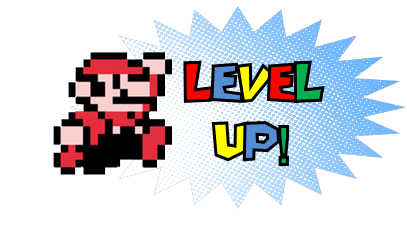Read – The FERM Scale
It’s time to put what you’ve learned to the test. Play and rate the following free educational games. While playing, consider rating each on the FERM scale.
F – Fun-factor: An effective educational video game has to be fun, or else it’s just plain old learning.
Ask yourself: How much fun do you have playing it? How much fun can you picture a young person having while playing it? Does it engage, or does it fall flat?
E – Educational Value: A good educational video game has to provide effective learning opportunities.
Ask yourself: Did you learn anything from it? Could you picture a young person learning by playing it? Does it strike the right balance between entertainment and education?
R – Replayability: A great educational game will keep you coming back for more. That way, you are more likely to learn, and the game is more likely to be a market success.
Ask yourself: Would you play the game again? Do you think a young person would play the game again? Do you think the gameplay is varied enough to sustain continual engagement?
M – Market Potential: A profitable educational game provides opportunities for monetization.
Ask yourself: Would you pay for this game in an app store? Could you envision buying a subscription to this game, or developer? Do you think advertisers would be attracted to purchasing ad space in or around this game?
Play each of the games, and then rate them on the FERM scale below. At the end of the week, we will tell you which game rated the highest, and which game didn’t make the cut.
Participate – Play the Following Games
Take some time to play the following games:
1. Text Twist – Text Twist is a spelling and vocabulary game where players must build all the possible words from a set of six random letters. There is a free version, as well as a “Deluxe” version available for $6.95. There is also a second version of the game Text Twist 2 available online as well.
2. Vocabulary – Vocabulary.com’s “Challenge” game is a simple multiple choice vocabulary game, with a few interesting wrinkles. Vocabulary.com is a high traffic website, and this game is front and center on its webpage.
3. Monkey Puzzles – Monkey Puzzles is a fun but simple game for young learners that teaches reading and vocabulary recognition. It features a number of mini point-and-click games which need to be unlocked through achievements in the previous levels.
4. Weapons of Maths Destruction – Besides having a great name, Weapons of Maths Destruction is a combination action-shooter and math game where players have to navigate a maze, shooting tanks and answering arithmetic questions that grow increasingly more challenging as the game progresses.
5. Leap School Super Spin –Super Spin is a popular math game for K-6 students by a developer called Leap Frog. Players must complete arithmetic challenges by shooting certain numbered balls together to eliminate them from a track. There are power-ups, skill levels and locked tracks that can be unlocked through achievements.
Participate – Now Rate the Games!


I found it difficult to rate the elementary games. I don’t think I am a very good judge of what would be fun, replayable or marketable for today’s young children.
I liked Vocabulary, although it might not be perceived as ‘fun’ to young learners because it doesn’t have graphics or multimedia. Older learners and adults should find the game interesting and challenging.
The game definitely has educational value, because of the design of feedback to learner responses and that feedback including examples of how a word is used. Vocabulary is actually a grammar and vocabulary learning tool combined, because its feedback demonstrates the type of word as well as the meaning of the word.
The inbuilt adaptive content makes Vocabulary replayable.
I’m not sure on market potential but the cost would need to be low. If distributed as an app, maybe $6-10 per consumer.